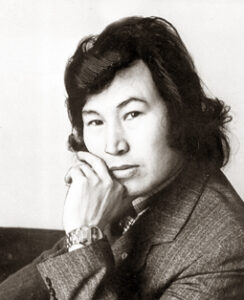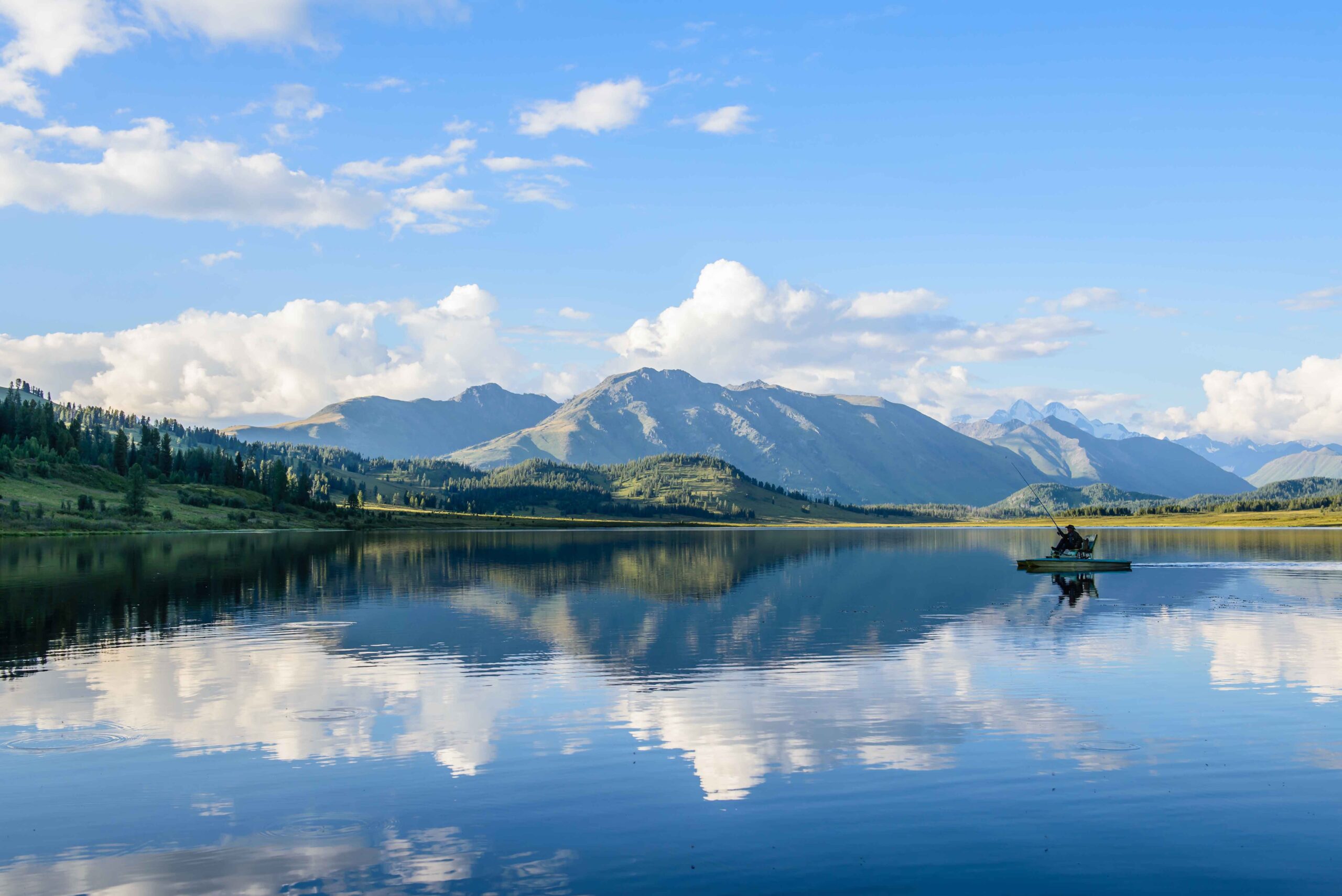ASTANA – On Sept. 28, Kazakhstan celebrates 80 years of Oralkhan Bokey, a gifted writer whose captivating stories intertwined the lives of Kazakh villagers with the untamed beauty of Kazakhstan’s eastern landscape.

Oralkhan Bokey. Photo credit: adebiportal.kz
Born in Chingistai village of Katon-Karagai district in eastern Kazakhstan, Bokey was the only son among five daughters. He came from a family where the power of words was valued. His father, Bokey, was a man of few words, but his speech was said to be razor-sharp, cutting like a dagger when he chose to speak. His mother Kuliya was a visionary and an open-minded person, who also wrote poems and was also a singer with a beautiful voice.
The country was in the midst of World War II when Bokey was born. His father was enlisted in the labor front in the Ural, so his mother, hopeful for her husband’s safe return, named him Oralkhan (the word “Oral” translates to “return” in Kazakh).
Bokey’s journalism career
Bokey started his career early, working as a proofreader at Enbek Tuy (Banner of Labor) and a literary worker in the Communism Tuy (Banner of Communism) newspapers, all while studying journalism at Kirov Kazakh State University in 1963-1969. He went on to write for the Leninshil Zhas (Lenin Youth) newspaper in Almaty in 1968.
The first collection of novels and stories, “Kamshiger” (Whip-man), received universal acclaim upon its publication in 1970. Its publication catapulted Bokey to prominence within the Kazakh intelligentsia as a distinguished writer.
He worked as the head of the prose department in the Zhuldyz (Star) magazine from 1974 to 1983. He then spent ten years at the Kazakh Adebieti (Kazakh literature) newspaper, first as deputy editor and later as editor-in-chief.
Throughout his career, Bokey combined journalism with writing.
East Kazakhstan’s nature in the works of Bokey
Bokey was an exemplary nature writer. Born in the Katon-Karagai village, which is part of the largest national park in Kazakhstan, the nature of the eastern region became the focus of his interests and attachments.
Deep down, his stories were fuelled by his own life and an effort to seek out the commonalities of human experience and nature. Some of his strongest works depict characters deeply entangled with their environment as if nature mirrors them.

Growing up with views like Lake Yazovoye in the Katon-Karagai State National Nature Park, it was hard not to write about nature for Bokey. Photo credit: Indira Zhumataeva/otkryvai.kz
A man caught in ice captivity in “The Scream,” a shepherd saving a flock of sheep from the storm in the “Singing Dunes,” young tractor drivers who lost their way in the thick January night from the story of “The Snow Girl” – all represent vivid human lives caught in the realms of nature.
The excerpt from Bokey’s “The Lightning Trail” story translated by Simon Holingsworth gives just that feeling of the pause to witness the day unfolding, in contrast to a man’s life.
“As the evenings drew in, he hoped the sun would not leave the sky. But it invariably disappeared beyond the horizon. Each morning he did not want the day to begin, but this wish was also never granted: the restless course of life continued uninterrupted. However hard he tried to avoid it, uneasy reality would force its way into his consciousness. Not a single ray of joy shone within him and it seemed that he no longer expected anything new from the world; the blazing battle between light and day, the struggle between good and evil, white and black, was everywhere: in unknown, distant corners of the world and right there, beside him. But perhaps this sense of unease that Kiyalkhan felt could be explained by the simple feeling of regret for the speed with which his life was passing him by, lost in this cruel world amidst a host of other lives, with no hope of ever being heard or understood,” it reads.
To appreciate rural Kazakhstan, one might enjoy Bokey as well. His characters are auyl (village) residents: shepherds, herdsmen, reindeer herders, mechanizers and foresters.
“All plots of my novels and stories are inspired by memories of native places, actual events of my youth. My fellow Kazakhs are people of solid character, honest and open-hearted. As if enchanted, they live in their ancestral space. Devoted to their native places, my fellow countrymen are proud, hardworking, valiant and honest people,” wrote Bokey.
Domestic and international acclaim
In many ways, Bokey proved a versatile storyteller. Writers such as Abish Kekilbay and Kasym Kaisenov spoke admiringly of his skills as a remarkably fluent and prolific writer.
“Oralkhan Bokey gained world recognition as one of the most scenic artists of Kazakh literature of the 20th century. In his brief life, Oralkhan managed to achieve such great heights for himself, his country and native literature,” said Kekilbay.
In Kaisenov’s words, he was “similar to his native nature.” “He was as lofty as Altai [mountains], as high as its impregnable peaks! (…) He was as wild as the roe deer that roamed the mountain ranges. He was as big as humpback stones. He was a bright star from the east,” said Kaisenov.
Bokey also became celebrated internationally. His books were published in German, Slovak, Bulgarian, English, Arabic, Chinese, Japanese and Russian languages.
He was a laureate of numerous awards, including Kazakhstan’s State Prize, the Lenin Komsomol Prize, the literary prize named after Ostrovsky, among others.
Sadly, the writer’s life came to an abrupt end during a business trip to India in May 1993.
